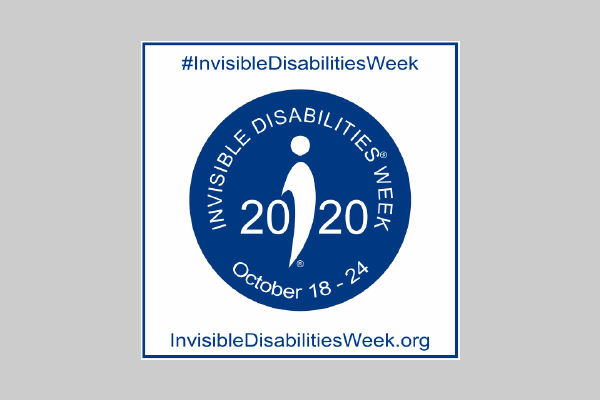The Invisible Disabilities Association is hosting its annual Invisible Disabilities Week from October 18 – 14, 2020 to spread awareness, education, and support.
Noting that we need to talk about invisible disabilities to create opportunities for helpful dialogue, the Invisible Disabilities Association began hosting Invisible Disabilities Week in 2014. Find ways to participate here. As the organization explains on its website:
Unfortunately, people often judge others by what they see and conclude a person can or cannot do something by the way they look. This attitude can be equally frustrating for those who may appear unable but are perfectly capable, as well as those who seem able, but are not.
International Disability expert, Joni Eareckson Tada, explained it well when she told someone living with debilitating fatigue, “People have such high expectations of folks like you [with invisible disabilities], like, ‘come on, get your act together.’ But they have such low expectations of folks like me in wheelchairs, as though the thought is that we can’t do much.”
The bottom line is that everyone with a disability is different, with varying challenges and needs, as well as abilities and attributes. Thus, we all should learn to listen with our ears instead of judging with our eyes. That is the reason we define invisible disability.
View the IDA’s I AM INVISIBLE NO MORE! Campaign here. It highlights various stories submitted by community members.
To support those living with invisible disabilities, the Invisible Disabilities Association Community has hosted its Invisible Disabilities Association Community (IDAC) online since 1999. Anyone in the Massachusetts legal profession interested in forming a group of any kind exclusively for Massachusetts lawyers, law students, and judges can find more here on our Free & Confidential LCL MA Groups.
Decisions about disclosing invisible disabilities for the purposes of seeking reasonable accommodations in law school and in the workplace can be difficult. You can find more on that in a previous post on our blog, Transitioning Reasonable Accommodations from Law School to the Workplace, which provides notes from an excellent panel hosted by the Boston Bar Association in early 2020.
Free & Confidential Consultations:
Lawyers, law students, and judges in Massachusetts can discuss concerns with a licensed therapist, law practice advisor, or both. Find more on scheduling here.




